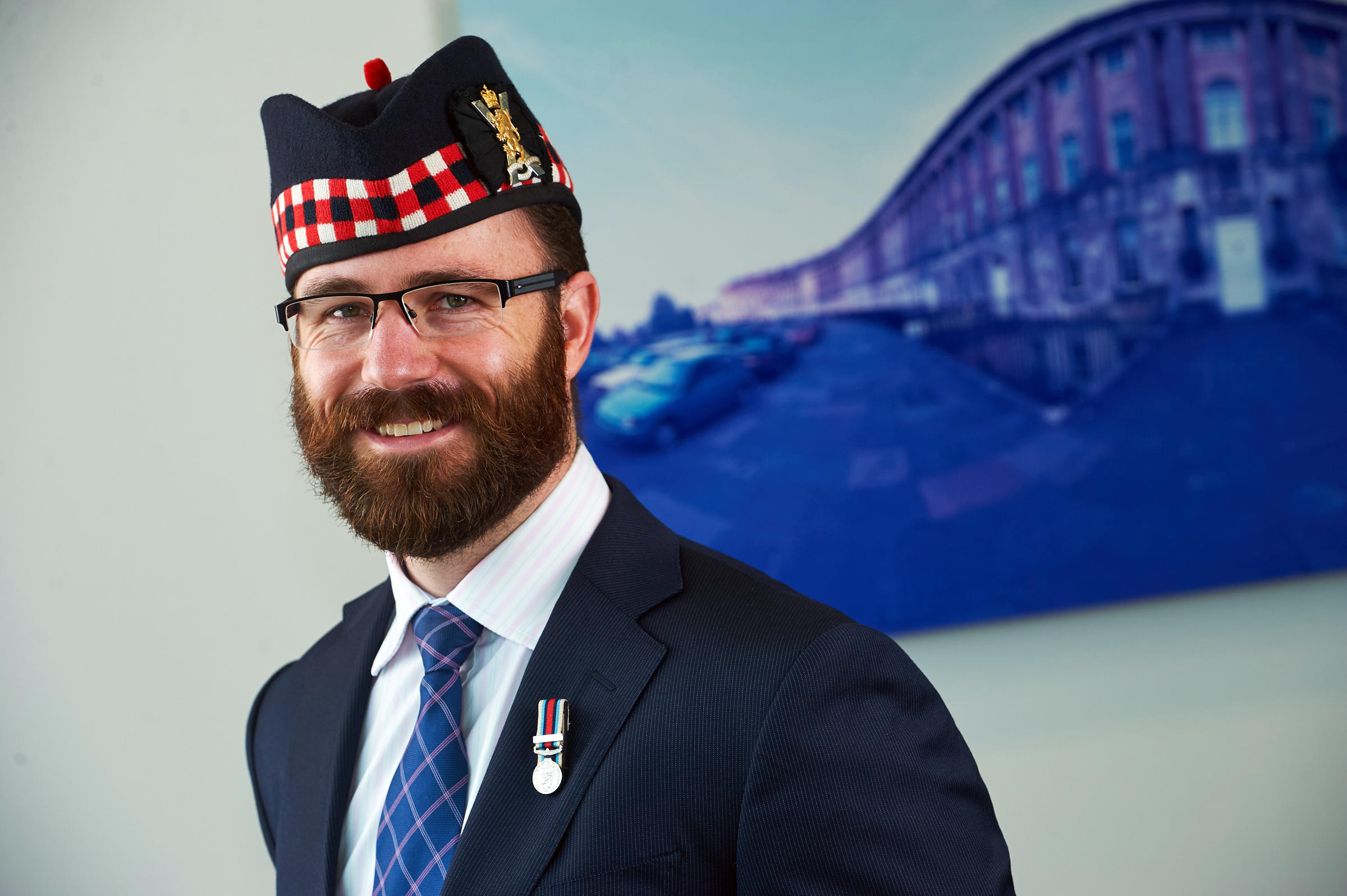To find out more about the Barclays Veteran Programmes visit:
https://www.veteranemployment.co.uk/
https://www.home.barclays/AFTERprogramme.html
Five top tips for making your CV stand out to civilian employers
Jamie Swinstead, Strategic Risk Manager, Barclays, and mentor on the Veterans Employment Transition Support programme (VETS)
Leaving the military can be a daunting time. After years of living in a familiar routine and structure, re-entering the civilian world can feel completely alien, and some veterans feel ill-equipped to embark on the necessary steps towards securing a job.
From my experience of working with military leavers through the VETS programme, I’ve found that chief among these concerns is often writing a CV and making your military skills relevant to the civilian world. It doesn’t have to be a daunting task though – below are my top tips for putting together a CV that will impress a civilian employer.

1. Make sure you’re applying for the right job
This one might sound obvious, but before you even put pen to paper, you need to ask yourself, is this really the right job for you? So many military leavers that I see feel that they need to take the first job that comes up, but there’s a lot to be said for really doing your homework and asking yourself a few key questions: What are your interests and passions, and does this job reflect those? Do the values of the company you’re applying for correspond with your own values? Skills are something you can learn on the job, but if your heart isn’t in the job you’re applying for, you’re unlikely to ever get what you want from it. Taking advice from a mentor can often be helpful in this situation, to help you identify what job you would be best suited for.
2. Attend a CV training workshop
CV writing is a skill, just like anything else, and so it’s important to get some guidance on how you can improve it. Sign yourself up to a CV workshop – Barclays runs workshops in conjunction with the CTP in Garrisons around the UK and at other training days across the country, where you can work with a mentor to help translate your military experience into language that is going to grab the attention of a civilian employer.
3. Learn the lingo
We all know that in the military we often use specialist language that can be difficult for civilians to understand. However, just as important as translating our experience into “civvy speak” is understanding the lingo of the corporate world. Look at a few example CVs or get yourself a book on CV writing to start to pick up some of the buzzwords to describe your experience and speak to potential employers in a language they will understand.
4. Read the job description, and read it again!
There’s no such thing as a one-size-fits-all CV – you should re-write and tailor your CV and covering letter for every job you apply for. Read the job description from front to back, then read it for a second time and highlight the key skills, experience, deliverables that they are looking for. This will give you a list of keywords to drop into your CV and covering letter, and show the employer that you understand what they are looking for and how you can fulfil the requirement.
5. Get advice
One of the most important things you can do is take advice from someone who has been in a similar position – getting a friendly eye to look over your CV can help you to spot things you might not have seen yourself. Barclays AFTER, and VETS, a coalition of organisations from the public, private and charity sector, can both help connect you with a mentor suited to your background and goals.
Gain access to military and civilian mentors by registering yourself at www.veteranemployment.co.uk. VETS is open to anyone who has served in the UK Armed Forces, or with any other nation’s Armed Forces, at any time, and has the tools to support you whether you are looking for your first career out of the military, or a change in your civilian career.
Stuart Tootal, Head of the Barclays Armed Forces Armed Forces Transition, Employment & Resettlement (AFTER) Programme, one of the VETS partners said:
“Veterans have a wealth of experience and possess innate skill sets that make them a valuable asset in the civilian world. However, the research shows that too many businesses are failing to appreciate the commercial value that these individuals can bring to the workplace and as a result too many veterans are in employment that underutilises their skills. “The real benefit of VETS is that it brings together existing activities to enhance support for veterans, working collaboratively to help them use their skills and enhance their careers. It will also assist employers in seeking to hire veterans into their workforce. The value that ex-military employees bring should not be underestimated, and at Barclays we have already benefited from hiring from the highly skilled veteran talent pool, while avoiding paying expensive fees to recruiters.”

![VETS-LOGO_blk_large[1].jpg](https://leadership.global/static/derivatives/bannerbgimage_f64dcddd77ba2488d1f31b6916b0366f/45dc5010-49fb-4f78-b56f6776568d7471.jpg)